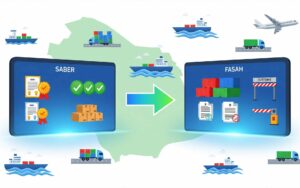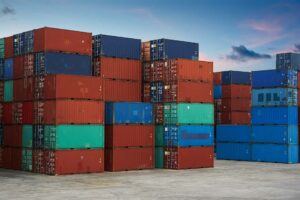Sustainability in the logistics sector is a crucial issue in our time, as environmental awareness increases and pressures on companies to reduce their negative impact on the environment grow. Sustainable logistics encompasses a range of practices and technologies aimed at reducing carbon emissions, improving resource efficiency, and minimizing waste.
Why Sustainability in Logistics?
-
Climate Change Mitigation:
The transportation and logistics sector significantly contributes to greenhouse gas emissions.
-
Enhancing Company Image:
Many companies and customers prefer to work with businesses that care about social and environmental responsibility.
-
Compliance with Environmental Regulations:
Many governments impose strict regulations on emissions and pollution.
-
Cost Savings:
Sustainable logistics operations can lead to long-term cost savings.
Strategies for Achieving Sustainability in Logistics
-
Improving Fuel Efficiency:
- Using electric or hybrid vehicles.
- Optimizing shipping routes and reducing distances.
- Maintaining vehicles well.
-
Inventory Management:
- Reducing excess inventory to minimize the need for frequent transportation.
- Using advanced inventory management systems.
-
Sustainable Packaging:
- Using recyclable or biodegradable packaging materials.
- Reducing the volume of packaging.
-
Multimodal Transportation:
- Combining different modes of transport (land, sea, air) to balance cost, speed, and environmental impact.
-
Reverse Logistics:
- Recycling materials and repairing products.
- Reducing waste and extending product life cycles.
-
Strategic Partnerships:
- Collaborating with other companies and suppliers to develop sustainable solutions.
Benefits of Sustainability in Logistics
-
Improved Operational Efficiency:
Through waste reduction and better resource management.
-
Cost Reduction:
By lowering fuel, energy, and inventory management costs.
-
Enhanced Company Reputation:
Attracting sustainability-conscious customers and improving company image.
-
Regulatory Compliance:
Avoiding fines and penalties.
-
Contributing to Society:
Protecting the environment and improving quality of life.
Challenges Facing Sustainability in Logistics
-
Initial Costs:
Investments in sustainable technologies may require high upfront costs.
-
Infrastructure Gaps:
The infrastructure for electric vehicles or charging stations may be insufficient in some areas.
-
Complexity of Global Supply Chains:
Coordinating sustainability efforts across the entire supply chain can be challenging.
The Future
The future of logistics heavily relies on the adoption of sustainable practices. With growing environmental awareness and stricter government regulations, sustainability will become a fundamental requirement for all companies in this sector. We can expect new technological advancements that will further enhance sustainability in logistics, such as the use of drones for goods delivery and the development of more sustainable packaging materials.
In conclusion, sustainability in logistics is not just an option but a necessity. By adopting the right strategies and developing modern technologies, the logistics sector can contribute to building a more sustainable future for our planet.





